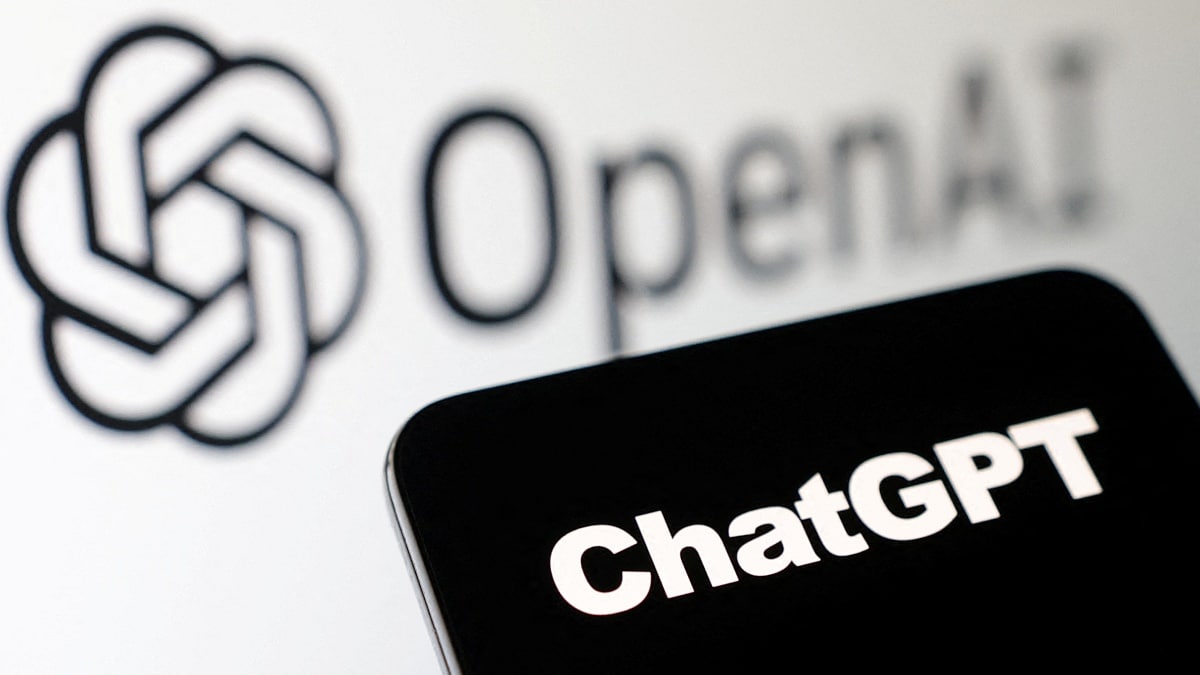FTC Probe Into OpenAI's ChatGPT: Implications For AI Development

Table of Contents
The FTC's Concerns Regarding ChatGPT and Data Privacy
The FTC's scrutiny of OpenAI centers around several key concerns, primarily revolving around data privacy and algorithmic bias.
Data Collection Practices
OpenAI's data collection methods have raised significant concerns regarding user privacy. The sheer volume of data used to train ChatGPT, coupled with the lack of complete transparency about data handling practices, has prompted the FTC investigation. Specific concerns include:
- Unconsented data usage: The question of whether users implicitly consent to their data being used for training AI models is a central issue. Many users may be unaware of the extent to which their data contributes to the model's development.
- Lack of transparency about data handling: OpenAI's policies regarding data retention, usage, and security require greater clarity and accessibility for users. The lack of transparent information compromises user trust and raises potential legal concerns.
- Potential for biased datasets: The data used to train ChatGPT may contain inherent biases, potentially leading to discriminatory outcomes. The FTC is likely investigating whether these biases violate existing regulations.
These issues directly clash with critical privacy regulations like the GDPR (General Data Protection Regulation) in Europe and the CCPA (California Consumer Privacy Act) in the United States, which mandate user consent and transparency in data handling.
Algorithmic Bias and Discrimination
Another significant concern is the potential for algorithmic bias in ChatGPT's outputs. The biases present in the training data can manifest as discriminatory outputs, perpetuating and amplifying existing societal inequalities.
- Examples of potential bias include gender stereotypes in responses, racial biases in language generation, and unfair or prejudiced answers in certain contexts.
- The FTC's focus on fair lending and anti-discrimination laws extends to AI technologies. If ChatGPT is found to produce discriminatory outputs that could influence financial decisions or other sensitive areas, OpenAI could face substantial legal repercussions.
Impact on AI Development and Innovation
The FTC investigation into OpenAI's ChatGPT has far-reaching consequences for the entire AI industry.
Increased Regulatory Scrutiny
The probe signals a significant shift towards increased regulatory scrutiny across the AI sector. This increased oversight may lead to:
- Stricter data privacy regulations: New legislation focusing on AI data handling and transparency is a likely outcome.
- Mandatory algorithmic audits: Regular assessments of AI models for bias and fairness might become a regulatory requirement.
- Heightened accountability for AI developers: Companies will be held more responsible for the ethical implications of their AI creations.
The need for responsible AI development, prioritizing ethical considerations alongside innovation, is now more pressing than ever.
Slowdown in Innovation?
While increased regulation might appear to stifle innovation, it also presents potential benefits. The debate centers on whether the potential drawbacks—reduced speed of development and increased compliance costs—outweigh the advantages:
- Increased trust and public acceptance: Responsible AI development fosters greater user trust and wider adoption of AI technologies.
- Ethical AI development: Regulations promoting fairness and transparency lead to more ethical and equitable AI systems.
Finding the right balance between fostering innovation and ensuring responsible AI development is crucial for the industry's future.
Shifting Development Priorities
The FTC probe is likely to force a significant shift in AI development priorities. Companies are now incentivized to:
- Prioritize privacy-preserving AI techniques: Methods like federated learning and differential privacy are gaining prominence.
- Focus on explainable AI (XAI): Building AI systems whose decision-making processes are transparent and understandable becomes vital for building trust and accountability.
The Future of Large Language Models (LLMs) and Responsible AI
The FTC investigation compels a reassessment of how large language models (LLMs) are developed and deployed.
Necessary Changes in LLM Development
To avoid future regulatory issues, developers of LLMs must adopt best practices, including:
- Obtaining explicit user consent for data usage: Transparency and informed consent are paramount.
- Implementing rigorous bias detection and mitigation techniques: Regular audits and proactive measures to eliminate bias are essential.
- Ensuring data security and protection: Robust security protocols are necessary to prevent data breaches and misuse.
The Role of Transparency and Accountability
Transparency and accountability are no longer optional but crucial aspects of AI development. This requires:
- Robust auditing and validation processes: Independent verification of AI models for fairness, accuracy, and security.
- Clearly defined mechanisms for redress: Users should have avenues to address concerns about biased or harmful outputs.
Collaboration and Self-Regulation within the AI Industry
Industry collaboration and self-regulation are vital in addressing ethical concerns. This includes:
- Establishing industry-wide standards and best practices for responsible AI development.
- Creating independent bodies to oversee and audit AI systems.
- Promoting open dialogue and knowledge sharing among AI developers and researchers.
Conclusion: Navigating the FTC Probe and Shaping the Future of ChatGPT and AI Development
The FTC probe into OpenAI's ChatGPT is a watershed moment for the AI industry. Its implications extend far beyond OpenAI, forcing a critical examination of data privacy, algorithmic bias, and responsible AI development. The key takeaways highlight the urgent need for increased transparency, accountability, and ethical considerations in the design, development, and deployment of AI systems, particularly LLMs like ChatGPT. This is not just about complying with regulations but about building trust and ensuring that AI benefits society as a whole. To navigate this evolving landscape effectively, it is imperative to stay informed about the FTC’s investigation and its ongoing impact on the future of AI technologies. Engage in discussions surrounding ethical AI development and regulation, and contribute to the creation of a responsible and equitable AI future. The future of AI, and the future of ChatGPT itself, depends on our collective commitment to responsible innovation.

Featured Posts
-
 Escape To The Country Top Locations For A Country Lifestyle
May 24, 2025
Escape To The Country Top Locations For A Country Lifestyle
May 24, 2025 -
 Escape To The Country Your Guide To A Peaceful Rural Retreat
May 24, 2025
Escape To The Country Your Guide To A Peaceful Rural Retreat
May 24, 2025 -
 Seattles Urban Parks Providing Refuge During Covid 19
May 24, 2025
Seattles Urban Parks Providing Refuge During Covid 19
May 24, 2025 -
 Nemecke Firmy A Hromadne Prepustanie Aktualny Prehlad A Dosledky
May 24, 2025
Nemecke Firmy A Hromadne Prepustanie Aktualny Prehlad A Dosledky
May 24, 2025 -
 Cyberattack To Cost Marks And Spencer 300 Million Full Impact Assessment
May 24, 2025
Cyberattack To Cost Marks And Spencer 300 Million Full Impact Assessment
May 24, 2025
Latest Posts
-
 Zekanin Sirri Burclarda Mi En Akilli Burclar Listesi
May 24, 2025
Zekanin Sirri Burclarda Mi En Akilli Burclar Listesi
May 24, 2025 -
 Burclar Ve Zeka En Yetenekli Burclar Hangileri
May 24, 2025
Burclar Ve Zeka En Yetenekli Burclar Hangileri
May 24, 2025 -
 Horoscope Predictions For March 20 2025 5 Powerful Signs
May 24, 2025
Horoscope Predictions For March 20 2025 5 Powerful Signs
May 24, 2025 -
 En Zeki Burclar Akil Zeka Ve Basarida Oende Olanlar
May 24, 2025
En Zeki Burclar Akil Zeka Ve Basarida Oende Olanlar
May 24, 2025 -
 En Zeki Burclar Dahilik Genleri Ve Akil Yetenekleri
May 24, 2025
En Zeki Burclar Dahilik Genleri Ve Akil Yetenekleri
May 24, 2025
